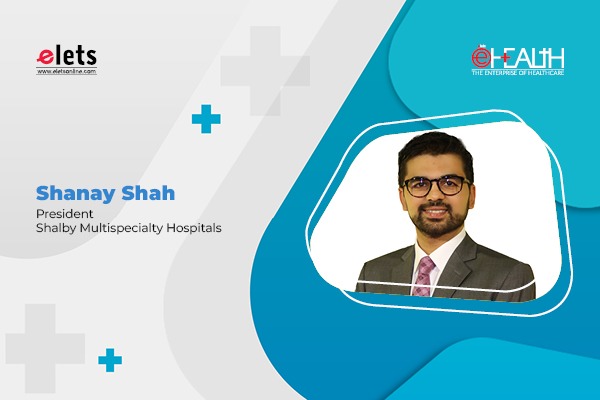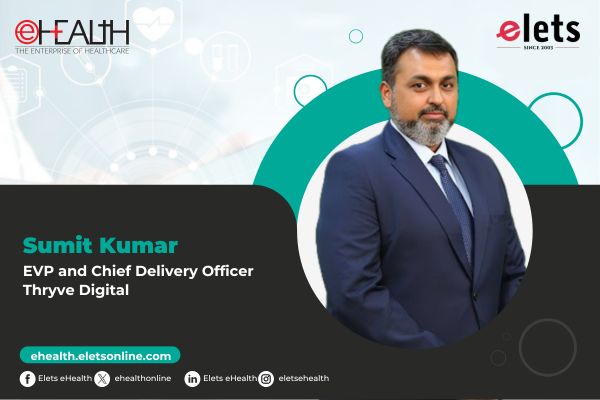
Given how technology has been transforming and building evolved business processes, hospitals are now gearing to engage digital technologies that will revolutionize the way they operate. Digital transformation will help hospitals make better logistical decisions and bring a faster response rate to critical functional activities. These will eventually enhance the quality and efficiency of care as well as the patient’s overall experience within hospitals. Technologies such as artificial intelligence (AI), machine learning (ML), advanced algorithms, and analytics will play big role in enhancing the immediate recognition of health indicators among patients.
Telemedicine bringing digital transformation in Hospitals

India is on the verge of a digital health transformation that, if successfully managed, has the potential not only to facilitate faster & better healthcare delivery, including in remote areas, but also to fuel the country’s economic growth and set an example for other rising nations. Telehealth saw expedited acceptance during the Covid-19 outbreak, finding a place among the rising digitally empowered India by allowing access to excellent healthcare with a near-zero contagion risk. However, its acceptance as a mainstream health service model necessitates collaboration among care providers, technology providers, homegrown entrepreneurs, multinational corporations, and government to create a robust and integrated telehealth ecosystem that can be both profitable and socially responsible.

Increasing digital users influencing digital adoption of hospital apps

India should see continuous penetration of medical and health apps in the following decade with an increasing number of internet users and rising awareness. Besides serving as a one-stop destination to access services of the hospitals, a healthcare app solution can serve as a consolidated healthcare data center for accessing and reviewing real-time medical reports, diagnosis and operational updates that facilitate communication, provide health analytics, and other passive patient interactions. This will assist healthcare establishments in developing an actively engaged customer base through collaboration with health care providers across the country. To handle the human dimensions of implementation, pre-planning, and executive assistance, the hospital or healthcare app will serve as a 360-degree solution.

Chatbots using AI and ML algorithms
Chatbots are being used by hospitals for automated conversation with patients for scheduling appointments, 24 x 7 availability, emergency assistance etc. Digital transformation is sure to see healthcare be transformed by chatbots in the future. They can significantly increase the efficiency and accuracy of symptom detection and disease diagnosis to provide preventative care and facilitate post-recovery care. Chatbots in healthcare comprises AI and ML interfaces that can be used to reduce human labor by quickly accessing, analyzing, and providing healthcare providers with a list of probable diagnoses. In the future, these chatbots will carry out repetitive duties such as offering solutions, emailing, marketing, lead creation, result analysis, and so on.
CRM software revolutionizing planning and communications in healthcare
CRM software for the healthcare business provides several benefits such as lower functional costs, more efficiency, better treatment, and much more. CRM benefits for a healthcare setting range from a consolidated data center to improved patient care and organization. CRM aids in the streamlining of many important procedures by bringing all critical data under one roof. A healthcare CRM is a patient relationship management solution that tightly weaves together numerous sources of data to offer a holistic view of patient habits and actions.
Digitization can streamline supply chain and inventory management systems
Digitization and technological input can greatly enhance and streamline existing supply chain and inventory management systems. These inventory management systems can be improved to promote and boost health care professionals in providing competent and timely treatments to patients. An automated system that collects, orders, computes and manages the medical, surgical, pharmaceutical supplies can greatly reduce costs related to supply chain and inventory management within the hospitals.
One of the primary missions for a hospital is to provide the right care within the right time frame. This involves evaluating and accurately diagnosing the right course of treatment while also efficiently managing the hospital resources. Challenges like capacity and resource management are critical avenues where digital and technological input will help build an advanced ecosystem. Besides giving the patients and health care staff a simplified approach to routine decisions, these transformational innovations can lower the high supply and inventory management costs in the hospital setup. The overall digital transformation will help increase automation of the different aspects of the healthcare ecosystem and fasten the response time and data transfer between all stakeholders at the hospitals and the healthcare industry.
Views expressed by Shanay Shah, President, Shalby Multispecialty Hospitals
Be a part of Elets Collaborative Initiatives. Join Us for Upcoming Events and explore business opportunities. Like us on Facebook , connect with us on LinkedIn and follow us on Twitter , Instagram.
"Exciting news! Elets technomedia is now on WhatsApp Channels Subscribe today by clicking the link and stay updated with the latest insights!" Click here!
















